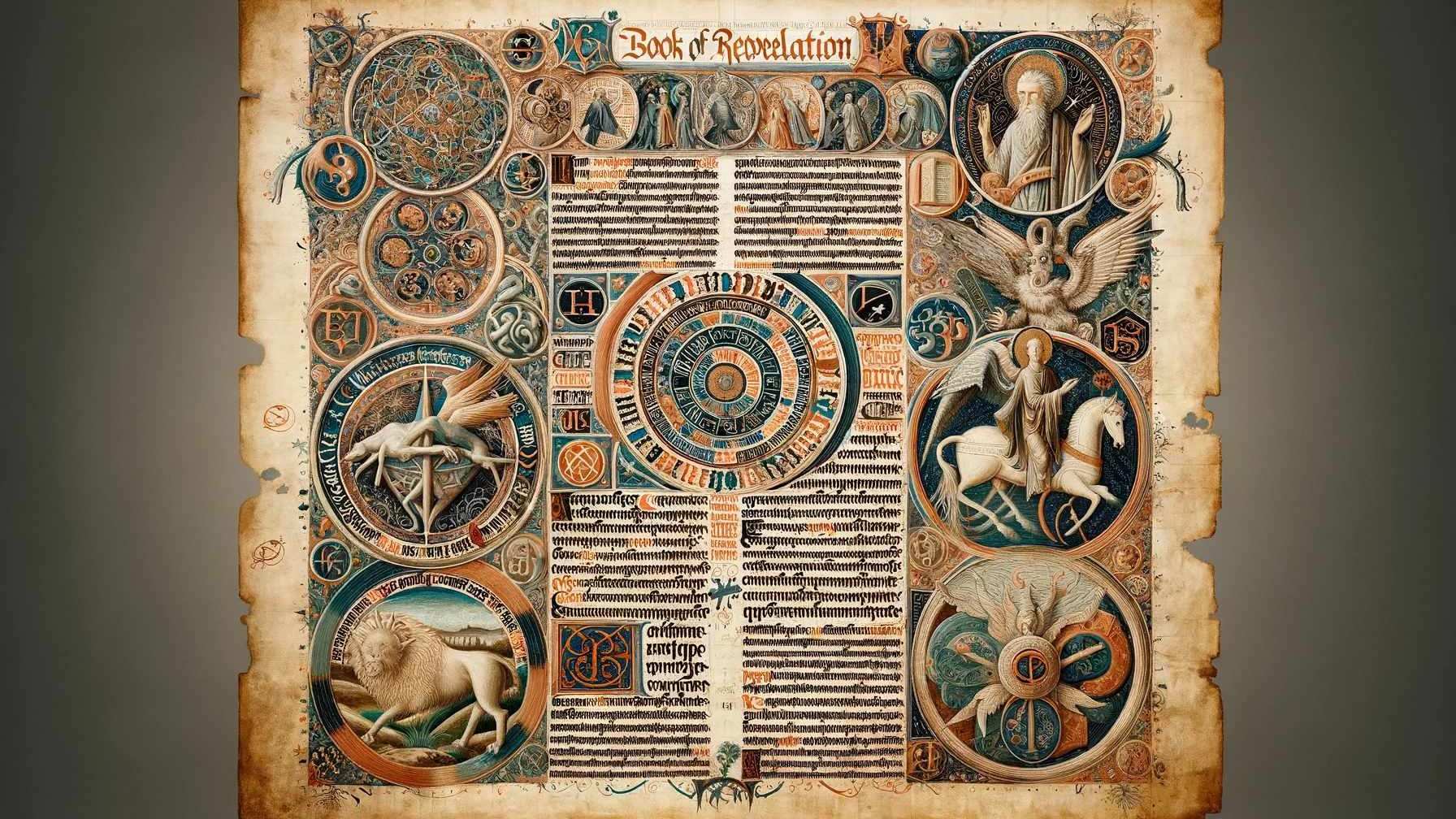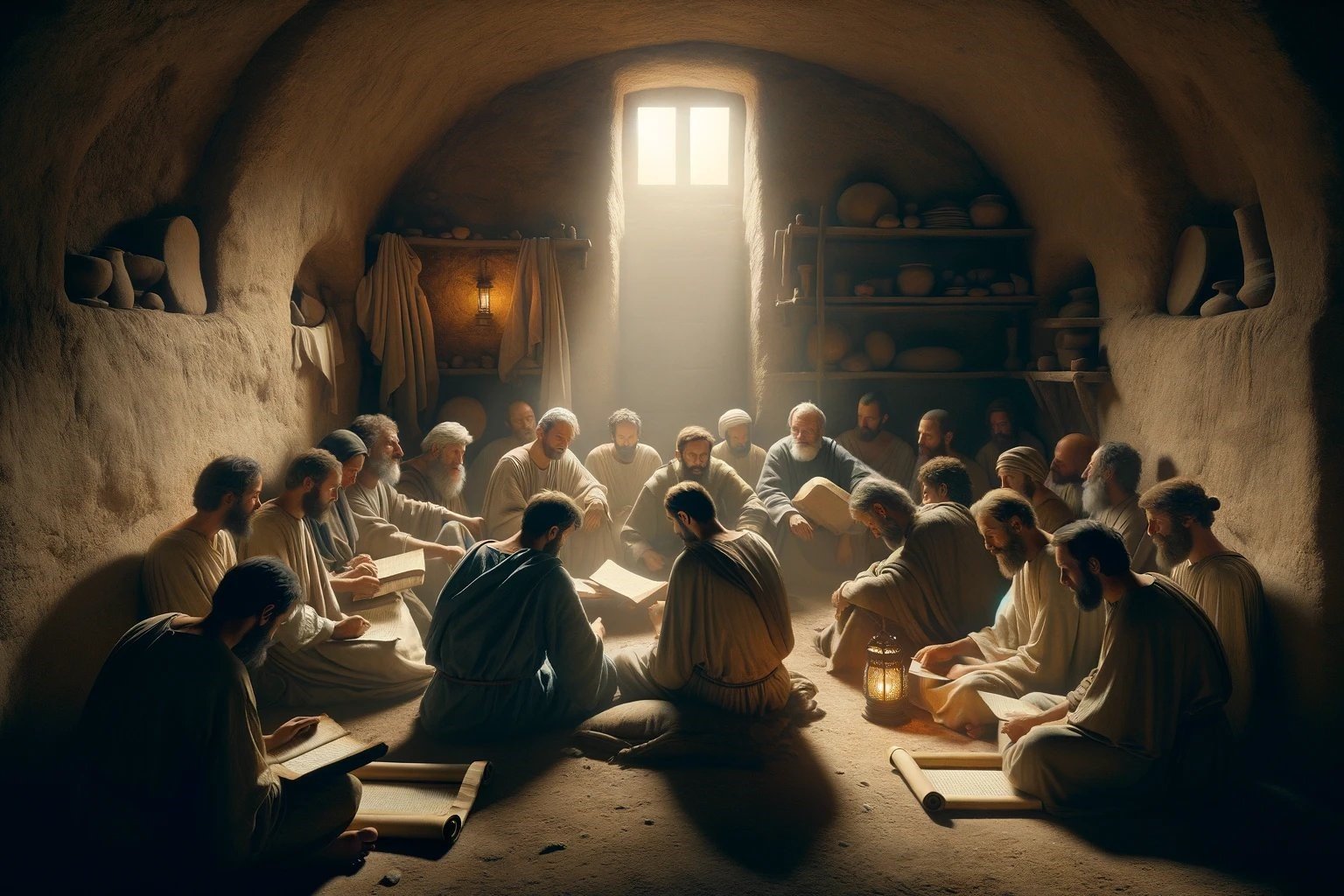Home>Bible Facts>How Does The Book Of Wisdom Support The Concept Of Natural Revelation


Bible Facts
How Does The Book Of Wisdom Support The Concept Of Natural Revelation
Published: February 11, 2024
Peter Smith, Editorial Director at Christian.net, combines deep insights into faith, politics, and culture to lead content creation that resonates widely. Awarded for his contributions to religious discourse, he previously headed a major organization for religious communicators, enhancing dialogue on faith's societal impacts.
Discover how the Book of Wisdom reinforces the idea of natural revelation and explore fascinating Bible facts in this insightful analysis.
(Many of the links in this article redirect to a specific reviewed product. Your purchase of these products through affiliate links helps to generate commission for Christian.net, at no extra cost. Learn more)
Table of Contents
Introduction
The Book of Wisdom, also known as the Wisdom of Solomon, is a captivating and profound text found in the Old Testament of the Bible. This ancient scripture is revered for its rich wisdom and insights into the nature of God, human existence, and the moral order of the world. Within its verses, the Book of Wisdom delves into the concept of natural revelation, shedding light on the ways in which the divine presence and wisdom are manifested in the natural world.
As we embark on a journey to explore the Book of Wisdom's perspective on natural revelation, we will unravel the profound connections between the natural world and the divine. This exploration will provide a deeper understanding of how the book supports the concept of natural revelation and offers timeless wisdom that continues to resonate with readers across generations.
Join me as we delve into the depths of the Book of Wisdom, uncovering its timeless teachings and profound insights into the concept of natural revelation. Through this exploration, we will gain a renewed appreciation for the intricate tapestry of creation and the divine wisdom that permeates the natural world.
Understanding the Book of Wisdom
The Book of Wisdom, attributed to King Solomon, offers profound insights into the nature of wisdom, righteousness, and the divine order of the world. This ancient text, revered for its poetic eloquence and philosophical depth, is a testament to the enduring wisdom of the Old Testament. Comprising 19 chapters, the Book of Wisdom is a rich tapestry of poetic verses and profound reflections that explore the nature of God, the human condition, and the moral order of the universe.
The book is characterized by its profound exploration of divine wisdom and the ways in which it manifests in the world. It invites readers to contemplate the intricate workings of the natural world and the profound wisdom embedded within its fabric. Through vivid imagery and thought-provoking allegories, the Book of Wisdom paints a vivid portrait of the interplay between the divine and the natural realm.
One of the central themes of the Book of Wisdom is the contrast between wisdom and folly, righteousness and wickedness. It extols the virtues of wisdom, portraying it as a guiding light that illuminates the path of righteousness and leads to communion with the divine. Through its evocative language and compelling imagery, the book beckons readers to seek wisdom and discern the divine presence in the world around them.
Furthermore, the Book of Wisdom offers profound reflections on the immortality of the soul and the eternal nature of divine wisdom. It delves into the concept of natural revelation, portraying the natural world as a testament to the divine wisdom and creative power of God. Through its vivid descriptions of the natural world and its intricate workings, the book invites readers to contemplate the profound mysteries of creation and recognize the divine imprint on the natural order.
In essence, the Book of Wisdom serves as a timeless repository of wisdom, offering profound insights into the nature of the divine, the human condition, and the intricate tapestry of creation. Its exploration of natural revelation provides a compelling framework for understanding the ways in which the natural world reflects the wisdom and creative power of the divine. As we delve deeper into the text, we will uncover the profound connections between the natural world and the divine wisdom that permeates it, offering a renewed appreciation for the intricate beauty of creation.
This section provides a foundational understanding of the Book of Wisdom, setting the stage for a deeper exploration of its insights into natural revelation.
Natural Revelation in the Book of Wisdom
The Book of Wisdom offers profound insights into the concept of natural revelation, portraying the natural world as a testament to the divine wisdom and creative power of God. Throughout its verses, the book vividly depicts the intricate workings of the natural world, inviting readers to contemplate the profound mysteries of creation and discern the divine imprint on the natural order.
One of the central themes of the Book of Wisdom is the portrayal of the natural world as a reflection of divine wisdom. The text eloquently describes the beauty and order inherent in the natural realm, presenting it as a manifestation of the divine creative power. Through evocative imagery and vivid descriptions, the book paints a compelling portrait of the natural world as a living testament to the wisdom and artistry of the Creator.
Moreover, the Book of Wisdom emphasizes the interconnectedness of the natural world and the divine realm. It portrays the natural world as a source of profound wisdom and insight, inviting readers to discern the divine presence in the intricate tapestry of creation. The book's portrayal of natural revelation serves as a powerful reminder of the divine wisdom embedded within the fabric of the natural world, encouraging readers to seek deeper understanding and appreciation for the beauty and complexity of creation.
Furthermore, the Book of Wisdom underscores the role of the natural world in revealing the moral order and divine attributes. Through its vivid descriptions of natural phenomena and the cycles of the natural world, the book highlights the inherent wisdom and purpose woven into the fabric of creation. It encourages readers to contemplate the profound significance of natural revelation, recognizing the divine attributes mirrored in the beauty, harmony, and order of the natural world.
In essence, the Book of Wisdom's exploration of natural revelation offers a profound framework for understanding the ways in which the natural world reflects the wisdom and creative power of the divine. Through its vivid imagery and evocative descriptions, the book invites readers to contemplate the intricate beauty of creation and discern the divine presence woven into every aspect of the natural realm.
This section provides a comprehensive overview of the portrayal of natural revelation in the Book of Wisdom, setting the stage for a deeper exploration of its profound insights into the interconnectedness of the natural world and the divine realm.
Support for Natural Revelation in the Book of Wisdom
The Book of Wisdom provides compelling support for the concept of natural revelation through its vivid portrayal of the interconnectedness between the natural world and the divine realm. This ancient text offers profound insights into the ways in which the natural world serves as a living testament to the wisdom and creative power of God, inviting readers to contemplate the divine imprint on the fabric of creation.
One of the primary ways in which the Book of Wisdom supports natural revelation is through its vivid imagery and evocative descriptions of the natural world. The text paints a rich tapestry of the natural realm, portraying its beauty, harmony, and intricate design as a reflection of divine wisdom. Through poetic language and compelling allegories, the book beckons readers to discern the divine presence in the awe-inspiring beauty of the natural world, fostering a deep appreciation for the profound mysteries of creation.
Furthermore, the Book of Wisdom underscores the role of the natural world in revealing the moral order and divine attributes. It portrays the natural world as a source of profound wisdom and insight, inviting readers to contemplate the divine attributes mirrored in the beauty, harmony, and order of the natural world. This portrayal serves as a powerful affirmation of the concept of natural revelation, highlighting the ways in which the natural world reflects the divine attributes and moral order inherent in the fabric of creation.
Moreover, the Book of Wisdom emphasizes the interconnectedness of the natural world and the divine realm, portraying the natural world as a manifestation of the divine creative power. Through its profound reflections on the natural world, the book invites readers to recognize the intricate beauty of creation as a testament to the divine wisdom and artistry. This portrayal serves as a compelling testament to the concept of natural revelation, affirming the ways in which the natural world serves as a living testament to the wisdom and creative power of the divine.
In essence, the Book of Wisdom offers profound support for the concept of natural revelation through its vivid portrayal of the interconnectedness between the natural world and the divine realm. Through its evocative descriptions and compelling allegories, the book invites readers to contemplate the profound mysteries of creation and discern the divine imprint on the natural order, fostering a deep appreciation for the intricate beauty of the natural world.
This section provides a comprehensive exploration of the Book of Wisdom's profound support for the concept of natural revelation, offering a compelling framework for understanding the ways in which the natural world reflects the wisdom and creative power of the divine.
Conclusion
In conclusion, the Book of Wisdom stands as a timeless testament to the interconnectedness between the natural world and the divine realm, offering profound insights into the concept of natural revelation. Through its vivid imagery, evocative descriptions, and compelling allegories, the book portrays the natural world as a living testament to the wisdom and creative power of God. It invites readers to contemplate the divine imprint on the fabric of creation, fostering a deep appreciation for the intricate beauty and profound mysteries of the natural world.
The Book of Wisdom's portrayal of natural revelation serves as a powerful affirmation of the ways in which the natural world reflects the divine attributes and moral order inherent in the fabric of creation. It underscores the interconnectedness of the natural world and the divine realm, inviting readers to recognize the profound wisdom and artistry woven into every aspect of the natural realm. This portrayal offers a compelling framework for understanding the ways in which the natural world serves as a manifestation of the divine creative power, inspiring awe and reverence for the beauty and harmony inherent in the natural order.
Furthermore, the Book of Wisdom's support for the concept of natural revelation is deeply rooted in its portrayal of the natural world as a source of profound wisdom and insight. It encourages readers to discern the divine attributes mirrored in the beauty, harmony, and order of the natural world, fostering a deep sense of wonder and reverence for the intricate tapestry of creation. The book's timeless teachings continue to resonate with readers, inspiring a renewed appreciation for the interconnectedness between the natural world and the divine realm.
As we reflect on the profound insights offered by the Book of Wisdom, we are reminded of the enduring relevance of its teachings in illuminating the ways in which the natural world reflects the wisdom and creative power of the divine. The book's portrayal of natural revelation serves as a timeless invitation to contemplate the profound mysteries of creation and recognize the divine presence woven into every aspect of the natural realm. Through its timeless wisdom and evocative imagery, the Book of Wisdom continues to inspire awe and reverence for the interconnectedness between the natural world and the divine, offering a profound framework for understanding the ways in which the natural world serves as a living testament to the wisdom and creative power of God.















